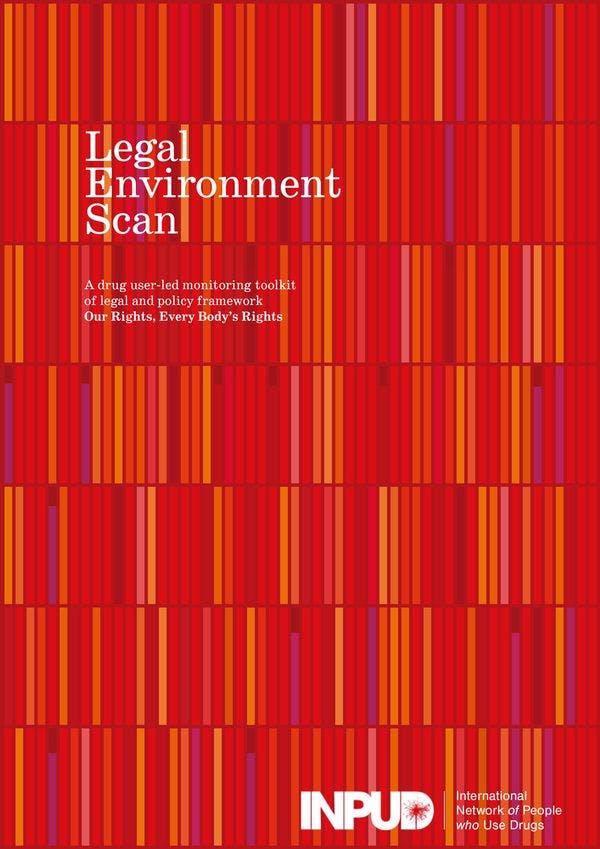Legal Environment Scan: A drug user-led monitoring toolkit of legal and policy framework
Legal and policy frameworks play an important role in protecting and promoting the right to health for people who use drugs by ensuring access to HIV and related services. Conversely, laws that criminalise drug use and aggressive law enforcement, which are both underpinned by and exacerbate stigma, discrimination and violence against people who use drugs, can exacerbate the marginalisation of people who use drugs, create barriers to their access to essential HIV services, harm reduction and protection against overdose and increase the impact of HIV and poor sexual and reproductive health on their lives.
It is recognized that “criminalisation of drug use, restrictive drug policies and aggressive law-enforcement practices are key drivers of HIV and hepatitis C epidemics among people who inject drugs” a view that is shared by several United Nations agencies. The Global Commission on HIV and the Law has recognised that these factors, together with fear of arrest, discrimination, marginalisation, stigmatisation and violence, drive people who inject drugs underground and exclude them from proper access to the harm reduction and health services they need to prevent overdose and protect themselves from HIV and hepatitis C.
The Global Commission on HIV and the Law was an independent body convened by UNDP on behalf of the UNAIDS family from 2010 to 2012. During its 18-month process, the Global Commission examined the impact of laws, policies and practices on HIV in seven regions of the world. The Commission’s report contains evidence that protective legal environments improve the lives of people living with HIV and reduce vulnerability to HIV infection. Across the globe, it also found evidence that stigma, discrimination, punitive laws, police violence and lack of access to justice continue to fuel the HIV epidemic. Laws that criminalise aspects of sex work, same-sex relations and drug use can lead to increased violence and brutality against these key populations, driving them away from health care and harm reduction services.
If we are to improve access to essential HIV services as well as to the harm reduction and health services for people who use drugs, it is critical that we identify the laws, policies and practices that act as barriers to access to these services for people who use drugs and advocate for their removal.
